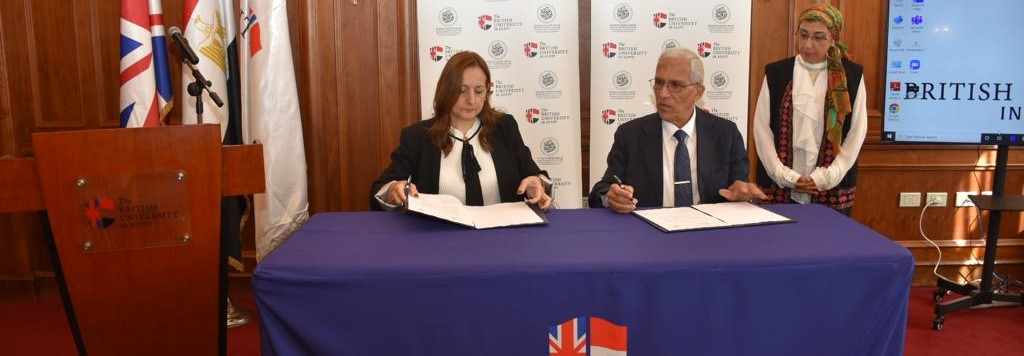Egypt's NIGSD, BUE sign co-operation agreement in fields of governance & Human Capacity Development

24 October 2022
The National Institute for Governance and Sustainable Development (NIGSD), the training arm of the Ministry of Planning and Economic Development, represented by Dr. Sherifa Sherif, Executive Director of the Institute, signed a cooperation agreement with the British University in Egypt (BUE) in the areas of governance, administrative development, support, building and development of human capacities.
Following the signing of the agreement, Dr. Sherifa Sherif expressed her happiness to cooperate with BUE.
She further highlighted BUE's distinguished position in relying on highly qualified human cadres and its constant readiness to contribute effectively in the field of community service within the framework of the state's development plans.
Sherif affirmed NIGSD's keenness to deepen cooperation with international and regional scientific, academic, and research institutions to benefit from the academic aspect in improving the efficiency of the scientific aspect applied in programs to develop and refine the skills of human cadres.
Sherif pointed to the importance of rehabilitating and raising the skills of workers in all fields to upgrade the service system and enable these workers to manage resources efficiently and effectively, which contributes to achieving sustainable development goals.
For his part, Prof. Dr. Yehia Bahey El-Din, a representative of the British University, said that the signing of the cooperation protocol between BUE and NIGSD represents new horizons for cooperation between the two institutions to build and develop human capacities and provide training opportunities and research activities.
The areas of cooperation between the institute and the university following the agreement include the implementation of a package of professional training programs and several seminars and workshops for faculty members and university employees on topics and specializations that are commensurate with the nature of their work.
The areas of cooperation also include contributing to the modernization and development of the university's information infrastructure and the application of the university's electronic university programs.









